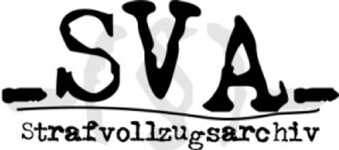Research Projects
About Prison Systems
The Prison Archive is committed to documenting and investigating the legal reality in prisons. Thus, the Prison Archive not only collects legal material, court decisions and legal and criminological literature, but also conducts research projects on the prison system.
During the years, and continued until today, the probably most important research project has been a legal commentary on prison law. The first edition was published in 1980 by Feest et al., today the seventh edition is published (2017) with Johannes Feest, Wolfgang Lesting and Michael Lindemann being the editors, and Sven-U. Burkhardt as well as Christine Graebsch contributing to it as authors and members of the Prison Archive.
Projects at the Dortmund University
of applied Sciences and arts
The Prison Archive at the Dortmund University of Applied Sciences and Arts contributed and continues to contribute to international research projects:
- Coalition for Fighting Violence in Prison, Duration: 5/2019 – 12/2019, Funded by the Federal Foreign Office of Germany
- Prison Radicalization Project, Duration: 2018 – 2019, Funded by the European Commission
- EU-Pretrialrights, Duration: 2017 – 2019, Funded by the EU Justice Programme
- Photovoice-Project Supervisible, Duration: 2015 – 2017, Funded by „EU-COST Action 1106 Offender Supervision in Europe”, by the Internal Research Funding of University of Applied Sciences and Arts in Dortmund (HIFF) and the Howard League for Penal Reform
- Re-socialisation of offenders in the EU: Enhancing the role of the civil society (RE-SOC), Duration: 2013 – 2015, Funded by the EU Criminal Justice Programme
Projects at the University of Bremen
Correspondence with prisoners has always the basis and inspiration for empirical research projects. The following research projects have already been conducted at the University of Bremen:
- In the context of a PhD project (Hoffmann 1990) on the practice of preventive confinement and disciplinary confinement (or arrest) (Art. 88, 89 of the German Penal Procedure Act, Art. 103 Para. 1 No. 9 of the German Penal Procedure Act), it was demonstrated that these legal instruments are not only used interchangeably in practice, but also that further sanctions involving deprivation of liberty are practiced without any legal basis.
- In a small qualitative survey of prisoners’ newspapers and prisoners known by the Prison Archive, the extent to which court decisions won by prisoners were not implemented by the prisons was examined. The respective behaviour of these correctional authorities could be proven by a dozen of such cases (Lesting & Feest 1987). The criticism of the research results by academics and practitioners prompted the Prison Archive to undertake a follow-up research project financed by the DFG (Deutsche Forschungsgemeinschaft).
- The systematic investigation, financed by the DFG, focused on the cases decided by the Higher Regional Courts in 1986. In each of the cases won by prisoners, both the prisoners and the prison management were interviewed about the further course of events. The result of the project is the book “Rechtsschutz in der totalen Institution” (Feest, Lesting & Selling 1997).
- Twenty years later, research on the resistance by prison authorities to implement court decisions, was again taken up. The Federal legislature reacted to the results of this research by introducing in the Prison Act a sanction (fine) along the lines of Art. 172 of the German Law on Administrative Courts (VwGO), (Feest & Lesting 2009).
- On the basis of correspondence with prisoners, the policy of permitting prison leave in the Länder and the decline of those measures since the end of the 20th century were analysed (Feest & Lesting 2005).
- As part of a PhD project, the treatment of so-called “offense deniers” by prisons and the resulting consequences for the rehabilitation mandate of the penal system were explored (von Lengerich 2010).
